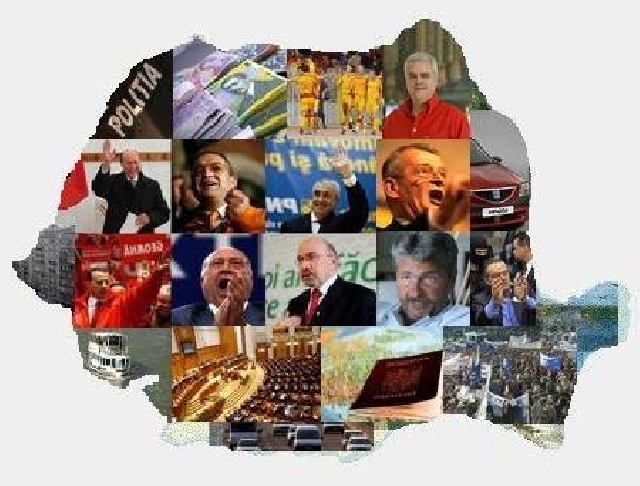July 22 – 29
A review of the most important events in Romania this past week.

România Internațional, 27.07.2013, 18:25
Prime minister Victor Ponta travels to Spain
The Romanian prime minister Victor Ponta travelled to Spain earlier this week for talks with his Spanish counterpart Mariano Rajoy. Talks focused mainly on ways to boost political relations, attract Spanish investors and protect and integrate the Romanian community in Spain, which makes up the largest ethnic community in this country. Bucharest and Madrid are involved in a number of joint projects and wish to develop new partnerships, said prime minister Ponta after meeting the Spanish prime minister. The two officials highlighted that in the first 6 months of the year trade relations between their countries grew by almost 15% compared to the same period in 2012. Prime minister Victor Ponta noted that the government in Madrid has given its full support to Romanian emigrants and that Romanians have never been the subject of discrimination policies or denigration campaigns in Spain. Before being received by the King of Spain, Juan Carlos, Victor Ponta met the representatives of the Romanian community in the Madrid area.
A joint International Monetary Fund, European Commission and World Bank delegation arrives in Bucharest
A joint mission from the International Monetary Fund, the European Commission and the World Bank arrived in Bucharest to discuss the possibility of a new precautionary deal with Romania. A previous agreement of a similar nature successfully came to an end in June. The international experts had talks with representatives of the economy and finance ministries, trade unions and the Association of Energy Utilities Companies, as well as with president Traian Basescu. According to the latter, the goals of the new agreement are macroeconomic consolidation, the salary law and the continuation of structural reforms. Another priority for Romania is finding a way to achieve and maintain economic growth as well as the creation of new jobs. The talks over a new agreement with the International Monetary Fund are based on an estimated GDP increase of 1.9% this year. Previously, the International Monetary Fund and the Romanian authorities had estimated a 1.6% increase this year and a 2% increase next year.
The privatisation of the freight division of the Romanian Railway Company reaches deadlock
The representatives of Romania’s international lenders also paid a visit to the government soon after the latter announced its decision regarding the privatisation of the freight division of the Romanian Railway Company. In June, the Romanian Railway Group, the largest private railway transport company in Romania and part of the Grampet Group, won the privatisation tender. Its bid stood at 202 million euros in exchange of 51% of the shares in the Romanian Railways’ freight division. The Romanian Railway Group also committed to investments worth 200 million euros. The privatisation deal could, however, be cancelled, unless approved by the country’s Supreme Defence Council, said the prime minister. Ponta explained that in the hypothetical event in which the Supreme Defence Council does not approve the privatisation, there is also a Plan B, which involves appointing a private manager and restructuring the company in order to make it profitable again. The next meeting of the Supreme Defence Council is scheduled for September, but, according to the spokesman for the president’s office, it is not the Council’s responsibility to issue privatisation approvals. In the meantime, trade unions have been accusing the authorities of doing little to rescue the company and ensure people’s jobs, and threaten to go on an all-out strike.
The Economist Intelligence Unit issues a report on Romania
The London-based country analysis and consulting business Economic Intelligence Unit says Romania will report a 2.4% economic growth this year and a 3.4% inflation rate by the end of the year. These results will be triggered primarily by a good crop year and an increase in exports to non-EU states. British analysts further estimate an exchange rate of 4.65 lei for the euro and 3.55 lei for the US dollar. Romania’s medium-term economic prospects are also looking good. The report indicates that between 2014 and 2017, Romania’s annual growth rate will increase, although it will not exceed 4%. Industrial output will also see a 3.6% increase in 2013. The London-based analysis firm also points out that in the event of a powerful external influence or a more serious recession in the Eurozone, Romania’s economic forecast for 2013 might be reviewed. The Romanians’ perception of the economic situation is stable, but according to the latest Eurobarometer, the number of those who gave positive answers remains low. The most difficult problems the Romanians say they have to face at present are the economic situation (44%), price hikes (35%) and unemployment (33%).
Romanian football teams have clinched good results in the European Cups
Three Romanian football sides — Petrolul Ploiesti, Pandurii Targu Jiu and Astra Giurgiu have qualified for Europa League’s third preliminary round after obtaining victories against Vikingur Gota from the Faroe Islands, Levadia Tallinn from Estonia and Omonia Nicosia from Cyprus. In the next leg of the competition, Petrolul takes on Dutch side Vitesse Arnhem, Pandurii will play Hapoel Tel-Aviv, from Israel, whereas Astra will be squaring up to Slovakian side AS Trencin. Romania’s champions Steaua Bucharest have outperformed Macedonian team Vardar Skopje to qualify for the Champions League’s third preliminary round, where they will play Georgia’s champions, Dinamo Tbilisi.




























